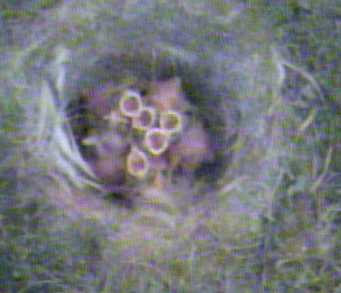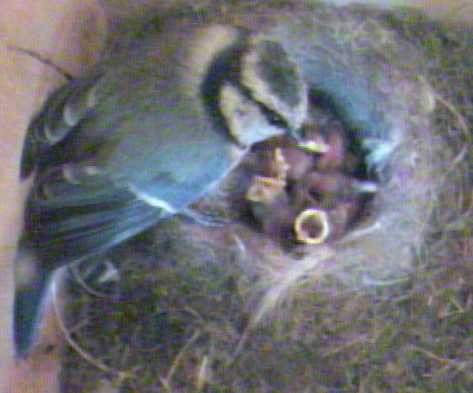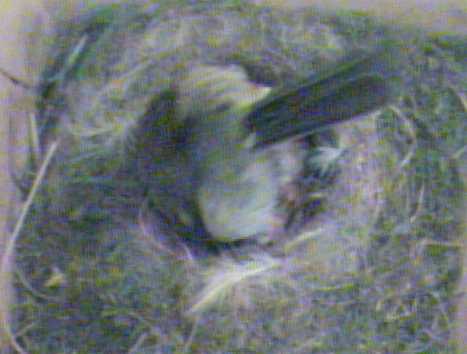
It is now clear that some of the eggs are not going to hatch. We believe that there may be 7 chicks and 2 unhatched eggs, but the chicks never stay in a position to make counting easy, so it's a bit of a guess. They all appear lively and most of the time appear eager for food and that's the main thing. They are getting stronger as time goes by and you can often see 5 or 6 gaping mouths when food is brought in
We are not sure what will happen to the unhatched eggs. The hen still regularly goes ferreting around at the bottom of the nest, behaviour that we associated with egg turning before any of them hatched. Certainly there is no sign yet of the eggs being buried.


